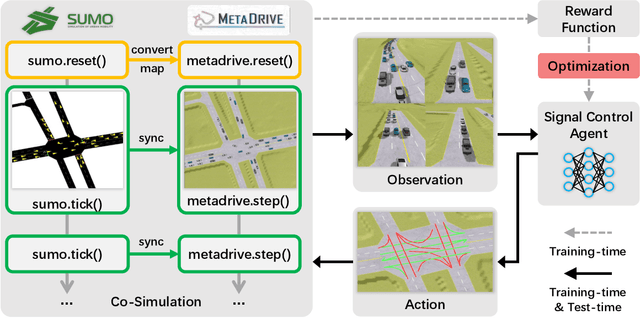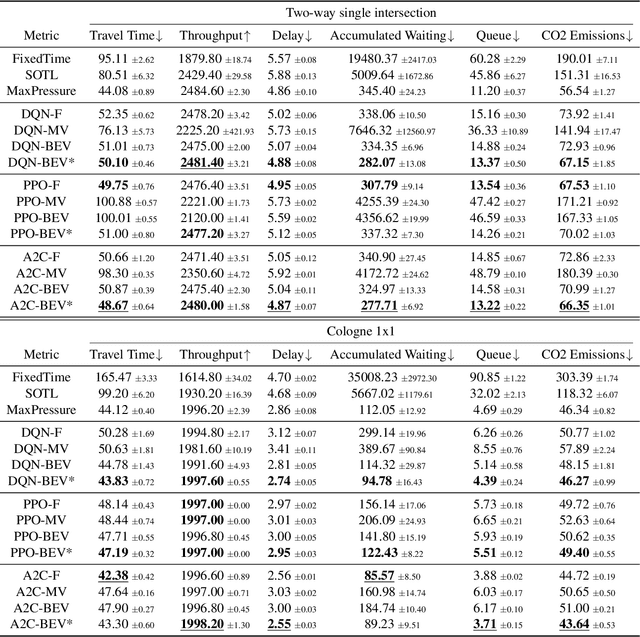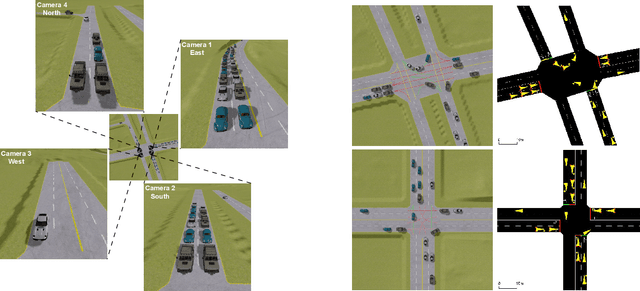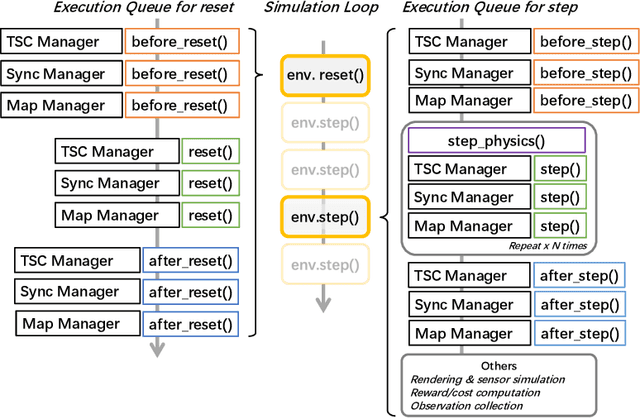A Holistic Framework Towards Vision-based Traffic Signal Control with Microscopic Simulation
Paper and Code
Mar 11, 2024



Traffic signal control (TSC) is crucial for reducing traffic congestion that leads to smoother traffic flow, reduced idling time, and mitigated CO2 emissions. In this study, we explore the computer vision approach for TSC that modulates on-road traffic flows through visual observation. Unlike traditional feature-based approaches, vision-based methods depend much less on heuristics and predefined features, bringing promising potentials for end-to-end learning and optimization of traffic signals. Thus, we introduce a holistic traffic simulation framework called TrafficDojo towards vision-based TSC and its benchmarking by integrating the microscopic traffic flow provided in SUMO into the driving simulator MetaDrive. This proposed framework offers a versatile traffic environment for in-depth analysis and comprehensive evaluation of traffic signal controllers across diverse traffic conditions and scenarios. We establish and compare baseline algorithms including both traditional and Reinforecment Learning (RL) approaches. This work sheds insights into the design and development of vision-based TSC approaches and open up new research opportunities. All the code and baselines will be made publicly available.
 Add to Chrome
Add to Chrome Add to Firefox
Add to Firefox Add to Edge
Add to Edge